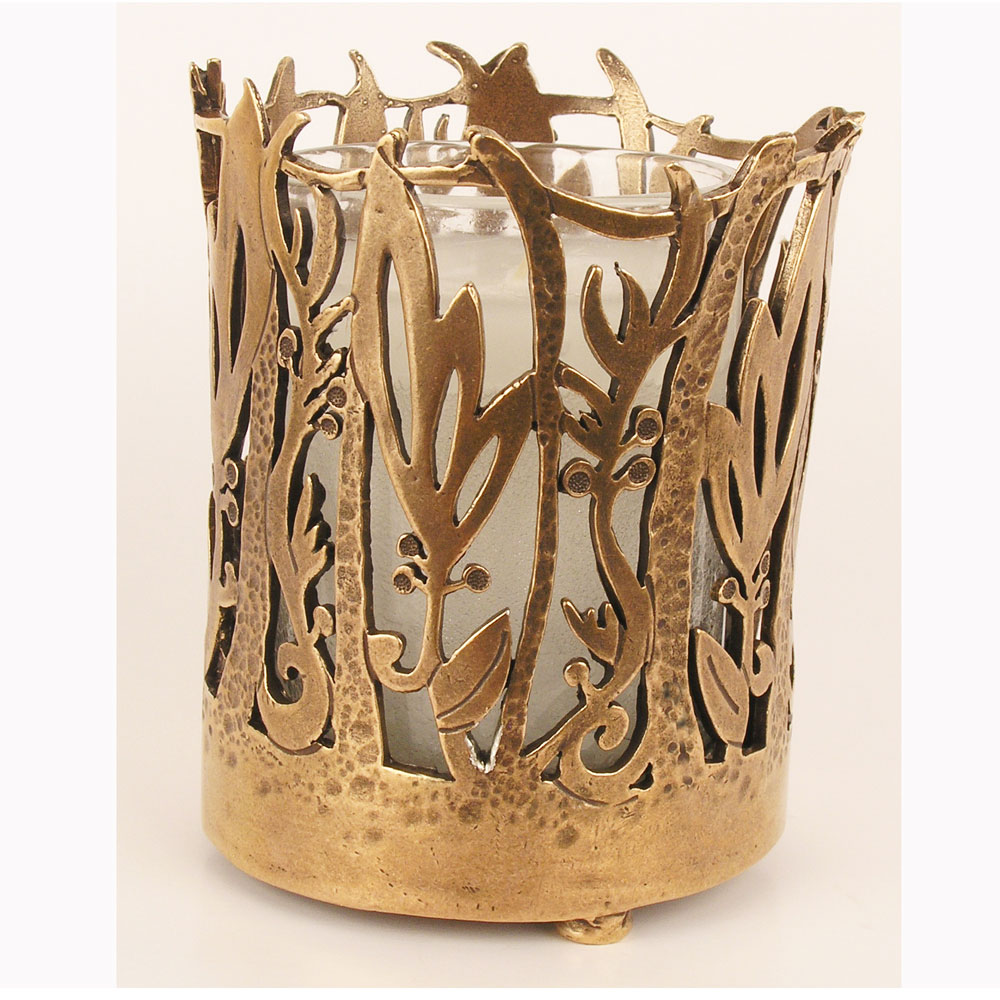When someone close to you dies such as parents, a spouse, your children (G-d forbid), grandparents, life partners, best friends, there are a tremendous amount of traditions and infrastructure set up within Judaism to help people through their grief and begin to heal.
If you are new to your own Judaism or you are not Jewish and you would like to use Judaism as guide or model for helping you though a tough time of mourning here are some tips:
The Week After Burial “SHIVA”:
After burial, shiva is the official 7 days of mourning for the immediate family, and usually takes place inside their home. A candle that burns for the entire week is lit to mark the beginning of the days of grief. I make a special holder for this candle.

A shiva call is a gathering which includes immediate family, extended family, friends, colleagues, people from your temple, church, synagogue, mosque etc. (You can ask a friend to do this for you as long as you provide them with a list of names/email addresses.)
People (guests) arrive at the specified time, wash their hands, and give an offering of food for you and your family, for later. Sometimes people also bring cards or flowers, but food is the most customary. This takes the burden of “entertaining” off of those in grief. Casseroles are helpful because they can be frozen. It is helpful to label your dish, so that the mourners will know who to give it back to afterwards.
You can hold this gathering only once, three times, or every night for seven nights. (Jewish tradition calls this time “Shiva” which means seven, for the seven nights that the community gathers.) Typically there is a spiritual element, like prayer that takes place at the gathering, although it is not a requirement. You could say a special prayer, while standing up, for the one who passed away– in remembrance.
At the gathering people will eat, and talk quietly. You– the mourner, will have the opportunity to talk, share memories, ask others to share if they knew the deceased. It is ok if you do not wish to share or talk. Guests clean their own dishes and are generally helpful at making the gathering less work on the bereaved.
The 30 days from Death “SHLOSHIM”:
You should give yourself 30 days (Shloshim is 30 in Hebrew) to mourn after the death. Shloshim means “excuse”– you should give yourself a break in general. You are excused if you mess up at work or home, you are excused if you are depressed, or not feeling “yourself.” Others in your family and community should treat you with extra care for at least a month after the passing. DO NOT expect yourself to be just fine– allow grief in.
One Year Gathering:
Six months to one year after the passing, you could gather with immediate family, or loved ones who knew that person. Typically this gathering might start at the grave site and unveil the tombstone. The tradition could be modified to include any type of item associated with remembering this person, like an Urn, or a special place that they liked to go. If you are spiritual you could say a prayer in their honor. Then the group will have a meal together.
Annual Candle lighting “YAHRZEIT”:
Every year on the anniversary of that person’s death (or even on their birthday), it is customary to light a special candle that burns for 24 hours. This candle can be found at a Judaica store, or even at some grocery stores. You may say the person’s name at the time of lighting the candle. I also light this candle on holidays and special gatherings when the people who are no longer with us are missed.
If you are interested in exploring the many details and laws associated with Jewish Grief Rituals go to this link on Chabad.org.

